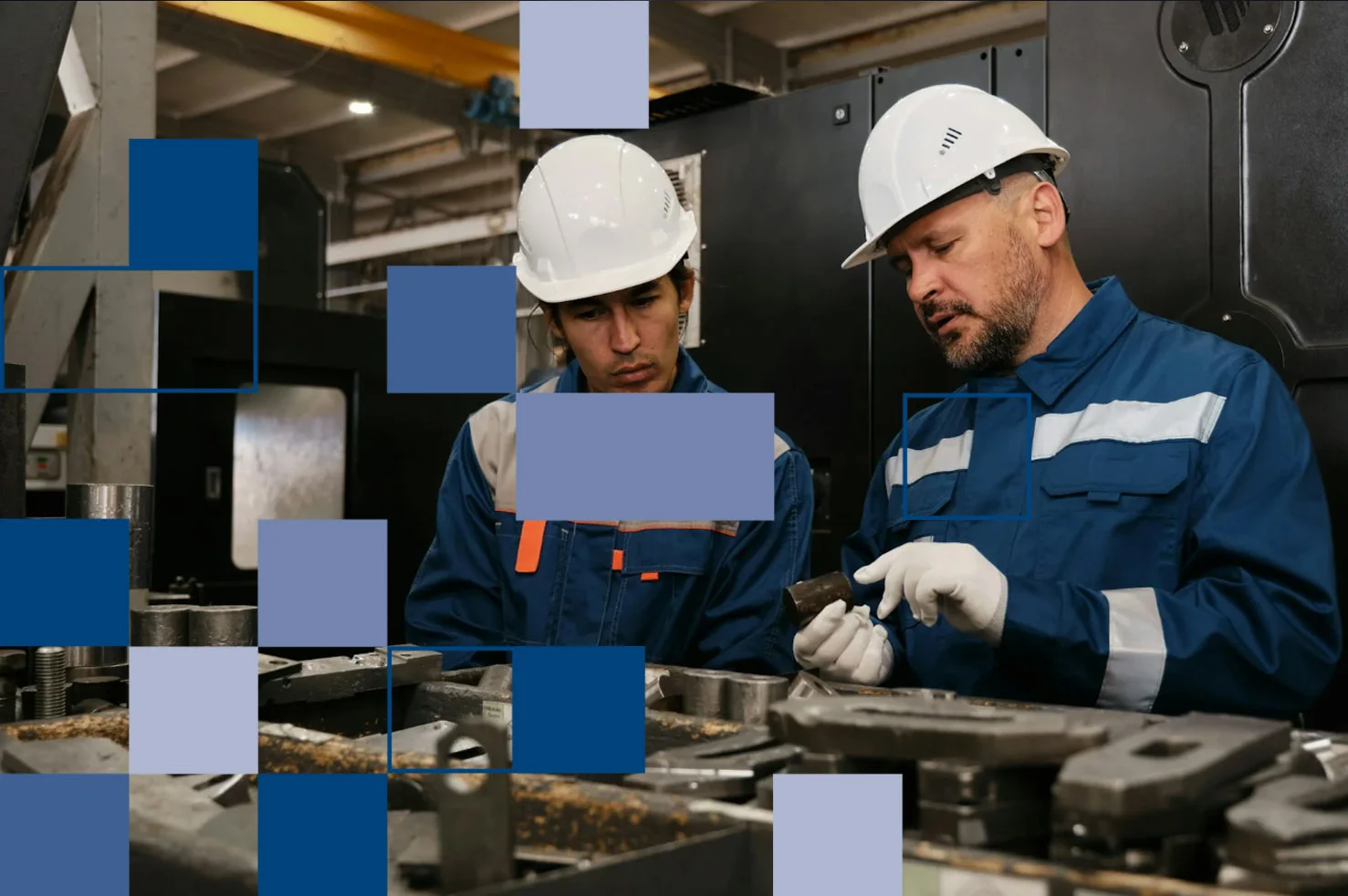Exploring Process Engineering: Roles, Skills, and Opportunities in Energy and Life Sciences
24 Jul, 20245 mins
Process engineering - a vital discipline
Process Engineering spans multiple industries, most notably the energy and life sciences sectors. It combines the principles of chemical, mechanical, and industrial engineering to design, analyse, and optimise processes that convert raw materials into usable products. Process engineers play a crucial role in ensuring that industrial processes are safe, efficient, sustainable, and compliant with regulatory standards.
This blog will delve into the various roles available for process engineers in the energy and life sciences industries, the qualifications and skills required to excel in these roles, and the current market trends shaping the profession.
The Role of Process Engineers
At its core, process engineering involves designing and optimising the systems and processes involved in producing goods, typically in industries that deal with chemicals, biochemicals, or energy. Process engineers analyse existing systems, make improvements, and ensure that production is efficient, cost-effective, and meets safety and environmental standards.
In the energy industry, process engineers work in oil and gas, renewable energy, power generation, and energy storage. They develop and improve processes for extracting and refining oil and gas, converting raw energy into usable forms, and storing energy efficiently.
In the life sciences sector, which includes pharmaceuticals, biotechnology, and medical devices, process engineers are responsible for scaling up lab processes to industrial-scale production. They ensure that drugs, medical devices, and biologics are manufactured in compliance with strict regulations and quality standards.
Types of Process Engineering Jobs in Energy and Life Sciences
1. Process Design Engineers
Process design engineers are responsible for designing and setting up systems that convert raw materials into final products. They work with equipment design, process simulations, and feasibility studies. These engineers also develop process flow diagrams (PFDs) and piping and instrumentation diagrams (P&IDs) that outline the operational steps required for production.
In energy, process design engineers might work on refining crude oil into usable fuel or designing systems for hydrogen production. In life sciences, they could design processes for producing biologics or scaling up drug manufacturing.
2. Process Control Engineers
These engineers focus on ensuring that production processes run smoothly and efficiently by implementing automated control systems. They monitor and adjust process parameters, such as temperature, pressure, and flow rates, to ensure that systems operate at optimal levels. Process control engineers also play a crucial role in troubleshooting issues and ensuring safety standards are maintained.
In the energy industry, process control engineers might monitor oil extraction systems or ensure that energy storage units operate within safe parameters. In life sciences, they ensure that pharmaceutical manufacturing systems run consistently, with minimal downtime or variability in product quality.
3. Process Safety Engineers
Safety is paramount in both energy and life sciences. Process safety engineers develop and implement safety protocols to ensure that processes are designed and operated without posing risks to workers, the environment, or the public. They perform hazard and operability studies (HAZOPs), risk assessments, and safety audits to identify potential issues and develop mitigation strategies.
In the energy industry, they are responsible for preventing catastrophic incidents such as fires or explosions in refineries or pipelines. In life sciences, process safety engineers ensure that drug production facilities comply with regulations like Good Manufacturing Practices (GMP) to prevent contamination and ensure product safety.
4. Production/Operations Engineers
Production engineers ensure that the daily operations of manufacturing plants run smoothly. They monitor equipment performance, troubleshoot problems, and optimize production schedules. In addition, they coordinate with other teams, such as maintenance and quality control, to maintain productivity.
In energy, these engineers ensure that oil rigs, refineries, and power plants operate efficiently, while in life sciences, they oversee drug and medical device production lines, ensuring that everything from raw materials to finished products meets strict standards.
5. Sustainability and Environmental Process Engineers
In response to growing concerns about climate change and sustainability, many companies are focusing on reducing their environmental footprint. Sustainability-focused process engineers work on developing greener production methods, reducing emissions, and finding ways to use renewable energy sources.
In the energy sector, they develop carbon capture and storage (CCS) technologies or optimise renewable energy systems. In life sciences, they work on reducing waste in pharmaceutical production or designing processes that use biodegradable materials.
Qualifications and Key Skills for Process Engineers
Education
A career in process engineering typically requires a bachelor’s degree in chemical engineering, process engineering, mechanical engineering, or a related field. Some positions, particularly those in research and development or more senior roles, may require a master’s or doctoral degree. Specific degrees in petroleum engineering or biomedical engineering may be preferred in the energy and life sciences industries, respectively.
Certifications and Licensing
While certification is not always mandatory, it can enhance job prospects and demonstrate a higher level of expertise. Common certifications for process engineers include:
- Certified Chemical Engineer (CCE)
- Professional Engineer (PE) certification
- Six Sigma Certification for process improvement
- Certified Safety Professional (CSP) for safety engineers
- In the life sciences, certifications related to GMP compliance and ISO 9001 (quality management) are often essential, while HAZOP certification is vital for safety roles.
Key Skills within Process Engineering
Problem-solving: Process engineers must be adept at identifying inefficiencies and implementing solutions. This involves both analytical thinking and creative problem-solving.
Technical Proficiency: A strong understanding of engineering principles, chemical processes, and the specific technologies used in their industry is essential.
Project Management: Process engineers often manage projects, coordinating teams and ensuring that projects are completed on time and within budget.
Attention to Detail: In both the energy and life sciences industries, the smallest details can have significant impacts on safety, efficiency, and product quality.
Communication Skills: Whether working with other engineers, presenting to management, or collaborating with regulatory bodies, process engineers must be able to communicate technical information clearly.
Safety and Compliance Awareness: An understanding of safety regulations and compliance standards is crucial in both industries. Knowledge of industry-specific standards such as ISO 45001 for safety management systems is also valuable.
Current Market Trends for Process Engineers
1. Sustainability and Green Energy
Sustainability is a key driver in both the energy and life sciences industries. The push for renewable energy, energy efficiency, and reduced carbon emissions is creating new opportunities for process engineers. In the energy sector, there is a growing need for engineers who can optimise processes for wind, solar, and hydrogen energy production.
In life sciences, process engineers are increasingly tasked with reducing waste, improving energy efficiency, and finding sustainable alternatives to traditional chemical processes. There is also a growing interest in circular economy principles, where waste products are reused in the production process.
2. Digitalisation and Automation
Digitalisation is transforming the role of process engineers. In both industries, there is an increasing focus on Industry 4.0 technologies, including machine learning, artificial intelligence (AI), and the Internet of Things (IoT). These technologies allow engineers to gather real-time data, optimise processes remotely, and predict potential failures before they occur.
In the life sciences sector, digital twins—virtual models of physical processes—are being used to simulate and optimize pharmaceutical production. Similarly, in energy, real-time data from oil rigs or power plants can be analysed to improve performance and reduce downtime.
3. Regulatory Pressure
As regulations around environmental impact, safety, and product quality become more stringent, process engineers must stay informed about new laws and standards. In the life sciences, there is increasing regulatory scrutiny on the manufacturing of biologics and personalized medicine. Meanwhile, in energy, engineers must navigate complex environmental regulations and safety standards related to offshore drilling, emissions, and hazardous materials handling.
Process Engineers - Be at the Forefront of Innovation
Process engineers are at the forefront of innovation and operational excellence in both the energy and life sciences industries. Their ability to design efficient systems, ensure safety, and drive sustainability makes them essential to the future of these industries. As market trends shift toward sustainability, digitalisation, and stricter regulatory environments, process engineers who embrace new technologies and remain adaptable will find themselves in high demand.
The diverse roles, required qualifications, and evolving skills make process engineering a dynamic and rewarding career path, with significant opportunities to impact both industry and society.
Browse our Latest Process Engineering roles: Here
At Orion, we specialise in many engineering specialisms. Browse available positions on our website: Here
Registering with Orion Group
Orion Group specialises in matching thousands of candidates to their ideal role around the world. We can help you take the next step by specialising in connecting talented individuals like you with leading companies that value your expertise and knowledge. By registering your CV with us, you’ll gain access to a wide range of potential job opportunities, ensuring that your skills and experience are matched with the right role.



